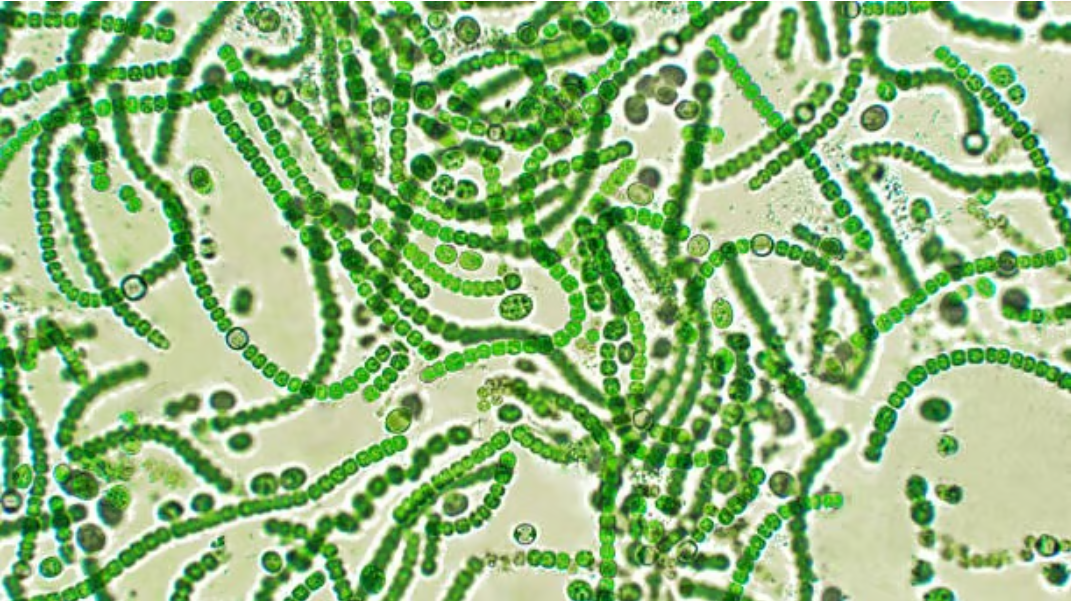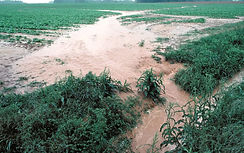
THE FACTS
Agricultural Runoff
The Parkinsons Pandemic and Pesticides
By Dr Frank Nicklason
Some of the most feared diseases of our time are the so-called neurodegenerative conditions.
Examples are Alzheimer type dementia (AD), Parkinson’s disease (PD) and Motor Neuron
Disease (MND, known in the US as Amyotrophic Lateral Sclerosis, ALS, or Lou Gehrig’s
disease).
Neurodegenerative diseases are complex, progressive and debilitating - they are diseases that keep taking physical and/or mental function, length and quality of life. Impacts are severe for the person affected, their family and friends, society, and the economy. Treatment is essentially

symptomatic and supportive - currently there are no cures, despite intense research efforts. The causes of these 3 neurodegenerative diseases are various and complicated - there are clear genetic factors in only a small minority of cases. There is evidence that environmental and lifestyle factors are MUCH more important than genetic factors. Countries that have undergone the most rapid industrialisation have the greatest increases in PD.
In this piece I will concentrate on Parkinson’s disease (PD). Over the last 20 years I have been involved with the care of hundreds of people with a diagnosis of PD - I have therefore witnessed sad deteriorations and loss of life as well as stressed family members and friends. I am all too aware that Parkinson’s disease is burdensome and that it is the most rapidly increasing neurological disease worldwide. The increase in PD is not simply explained by ageing of the population, nor by better diagnosis. The rapid increase can’t be explained by changing population genetics.
For most of history, PD was a rare disorder. The name Parkinson’s disease refers to the English physician, Dr James Parkinson, who in 1817 wrote a case series of 6 people he encountered in London. Dr Parkinson described what he thought was a novel condition - the affected individuals were stooped, shuffling slowly and had tremors. Few lay people today would be unable to identify the condition we now call Parkinson’s disease. In Parkinson’s time London was filthy with the pollution of the Industrial Revolution. One of the world’s top Parkinson’s Disease neurologists and researchers (Professor Michael Okun from the United States) has termed the increase in PD as the Parkinson’s pandemic. The Parkinson’s pandemic is fuelled by population ageing and by the (pollution) by-products of industrialisation.
The curious case of a man in California who, over the course of a week or so, developed severe and irreversible Parkinsonism in the early 1980s was a catalyst for research into environmental risk factors for PD. This unfortunate man had used a street drug which contained the contaminant MPTP. Five other people were later identified who had also used this contaminated street drug and suffered the same fate. MPTP causes degeneration to the cells of a part of the brain called the substantia nigra. The substantia nigra is prominently affected in PD. MPTP kills these cells by inflicting damage to the mitochondria. Damage and poor function of mitochondria is a key feature of PD.
How does the MPTP story relate to the rapid increase in PD worldwide? The global use of pesticides (herbicides, insecticides, fungicides) is at a peak. One of several pesticides that have been clearly linked to causation of PD is the herbicide paraquat. Paraquat has a chemical structure similar to MPTP. Over 30 countries have banned the use of paraquat because of its strong link to PD. But paraquat is still used in Australia, the USA, Brazil, Columbia and Taiwan. It is not just those who have direct contact using paraquat that are at risk of developing PD. Paraquat readily enters water courses and the food chain. The Australian Pesticides and Veterinary Medicines Authority (APVMA) is considering the ongoing licencing of paraquat. There are concerns that strong lobbying from commercially interested parties will prevent the APVMA from taking the strong regulatory action required.
Related Articles
Parkinson's disease may be linked to farm chemical paraquat ABC, August 2024.